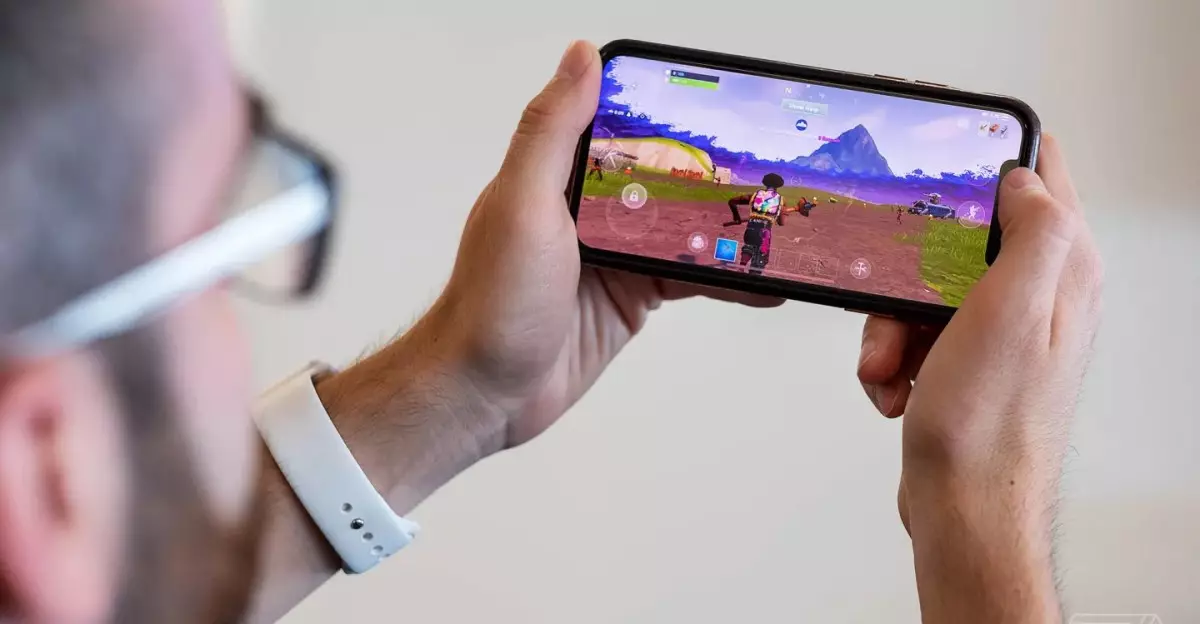Fortnite, the battle royale game that took the world by storm, is making a celebrated return to the iOS App Store nearly five years after its initial removal. Epic Games has formally announced that the game is once again available to players in the US, marking a significant turn in the ongoing saga between Epic and Apple. The factors leading to this momentous rehabilitation stem not only from a precarious legal battle but also from the broader implications of how app store policies are evolving in light of consumer demand and competitive pressures.
The Legal Tug-of-War
Epic Games was initially ousted from the App Store because it boldly introduced its own payment system, infringing upon Apple’s stringent guidelines that mandated a 30% commission on in-app purchases. The ensuing legal fracas, epitomized by the Epic Games v. Apple case, opened up a larger discussion about monopolistic practices in app distribution. The court’s recent decision to prevent Apple from enforcing its inflated fees for purchases made outside of their ecosystem arguably levels the playing field for developers and could signal an era of reduced restrictions imposed by major tech giants.
This slightly adjusted legal landscape is pivotal not only for Epic but potentially for other developers seeking fairer terms in their dealings with Apple. As an observer, it’s fascinating to think that the outcome of one legal case could shred the curtain on a long-standing monopolistic barrier, enabling a wider array of games and applications to thrive on platforms that were previously stifled by excessive fees.
Epic’s Strategic Moves Following the Ruling
As the dust settled from the landmark ruling, Epic’s CEO, Tim Sweeney, took an approach that can be characterized as both bold and diplomatic. His “peace proposal,” which entailed extending the court’s favorable rulings globally, suggests a willingness to negotiate and adapt rather than dwell exclusively on litigation. With Epic’s submission of Fortnite to the App Store via a Swedish developer account, it illustrates a clever maneuver to circumvent potential blocks from Apple based on geographical regulations.
Yet, a recent temporary roadblock saw Epic’s efforts again curtailed by Apple’s request to resubmit the app in a manner that would not impact Fortnite’s availability in other regions. This dance between Epic and Apple illustrates the complexities of navigating digital marketplaces, yet it eventually culminated in the restoration of one of the most profitable games on mobile platforms.
Revamping Player Engagement Through Incentives
In the relaunch of Fortnite on iOS, Epic has also introduced a compelling incentive to entice players towards its own payment system. Offering a 20% back in Epic Rewards for using its meticulously crafted payment gateway incentivizes players to engage directly with Epic’s ecosystem rather than through Apple’s in-app purchase system. This not only fosters loyalty among existing players but also has the potential to draw in new users who are incentivized by store credits.
The unique melding of Fortnite’s gameplay experience with new promotional strategies underscores how developers can engage their audiences beyond mere gameplay. It challenges the conventional wisdom that app distribution platforms only serve as conduits but rather as entire ecosystems where consumer relationships can be strengthened.
The Future Landscape of Mobile Gaming
With Fortnite’s triumphant return, we are witnessing the dawn of a new mobile gaming era, one laden with more developer-friendly conditions and consumer-oriented strategies. Epic’s actions not only pave the way for their gaming universe but also serve as a clarion call for other developers to rethink their approaches to app store negotiations.
Moreover, the community-centric approach seen through Fortnite’s continued investment in thematic expansions, like the recent Star Wars season, and the integrated benefits of Epic Rewards hint at promising horizons for both gaming communities and the app industry. The emphasis on strong, engaging content coupled with equitable distribution might significantly reshape the norms of mobile gaming ecosystems.
With the sectors of technology, gaming, and app development constantly in flux, Fortnite’s return encapsulates the undercurrents driving these changes. It is a fascinating juncture that encourages not only excitement about the game itself but also sparks broader conversations about digital economies in an increasingly interconnected world.


Leave a Reply